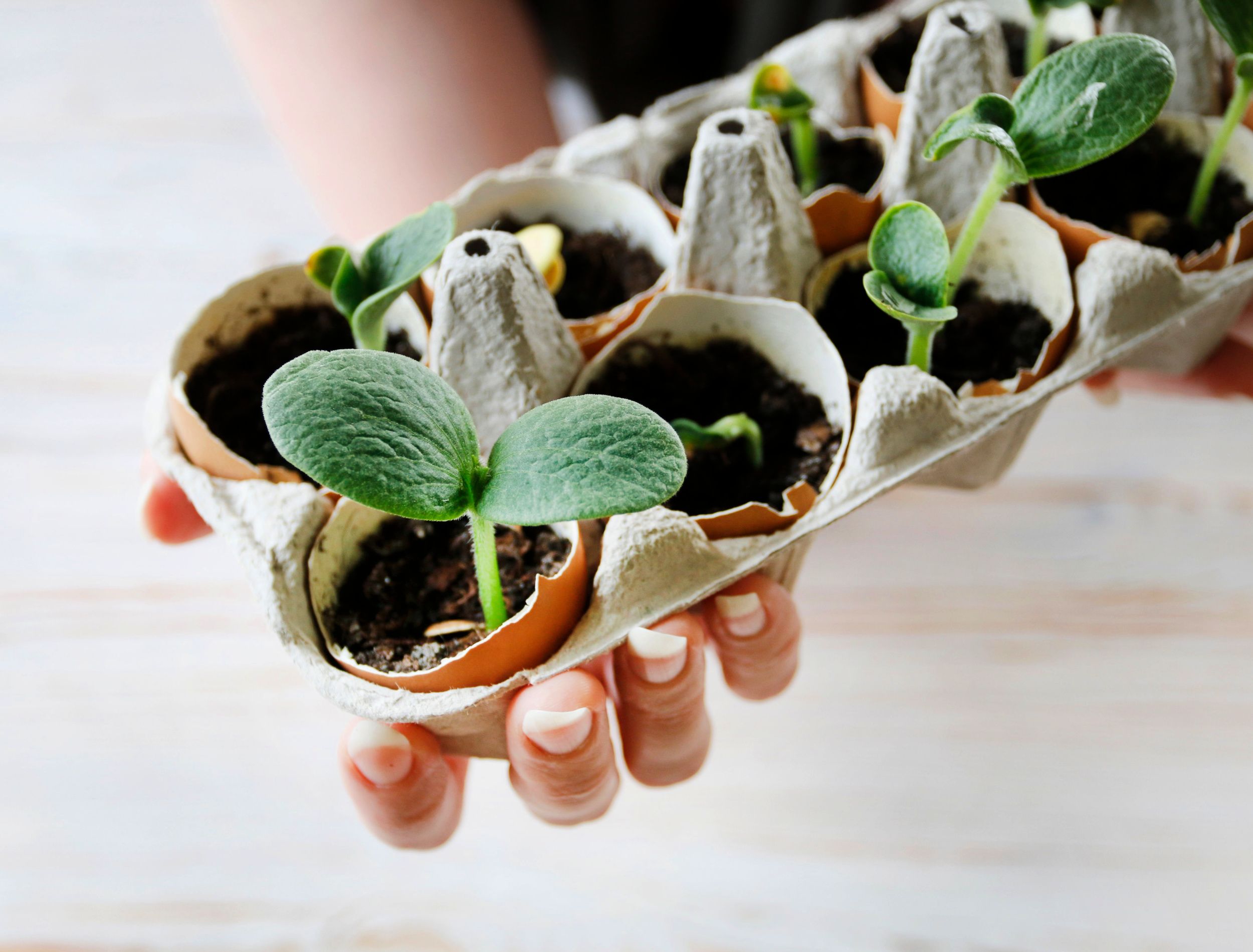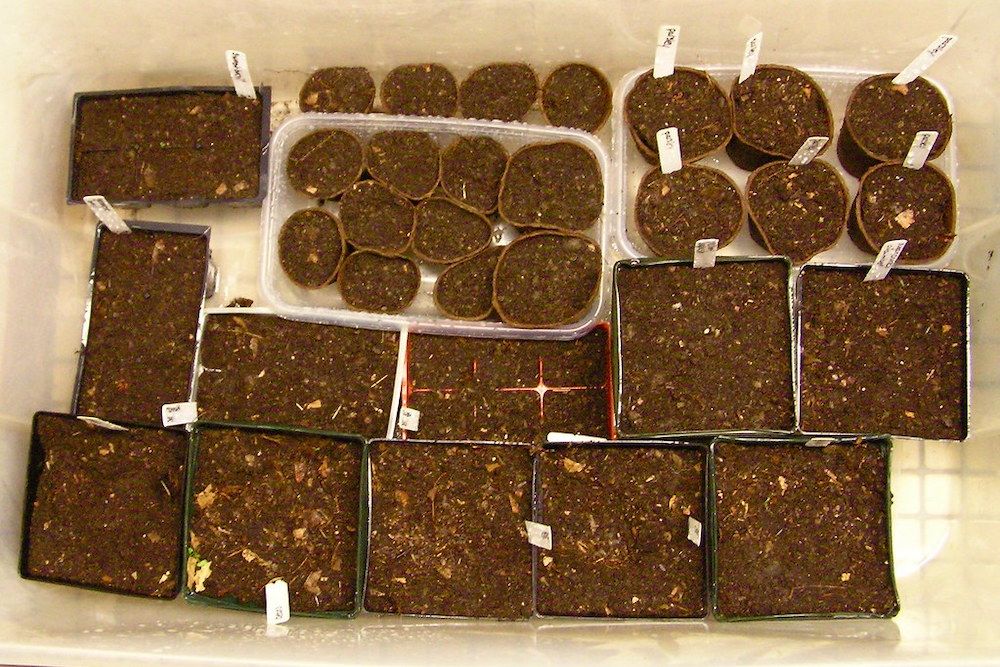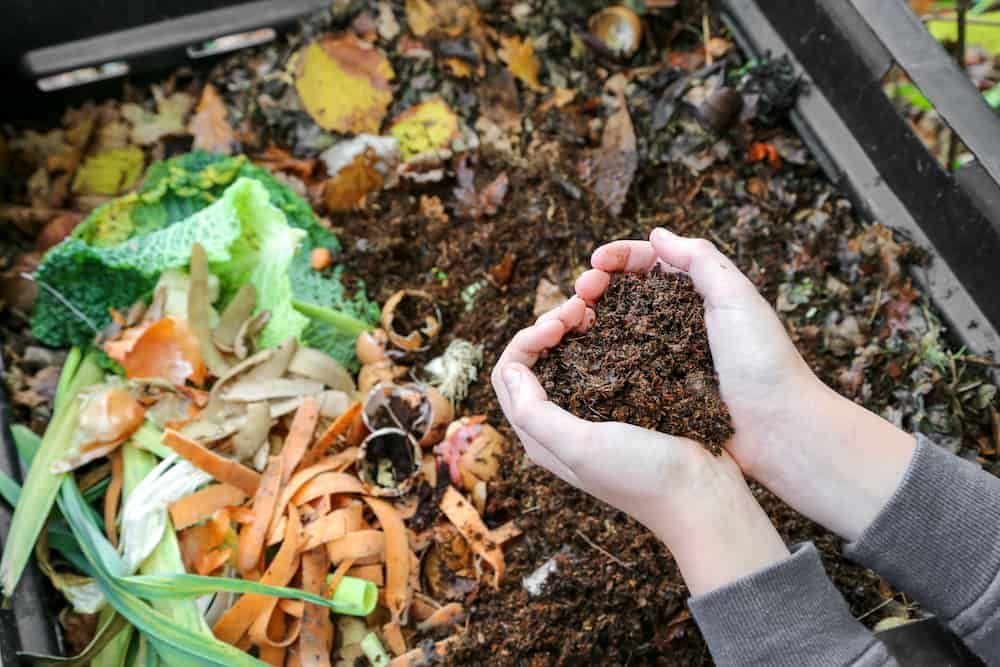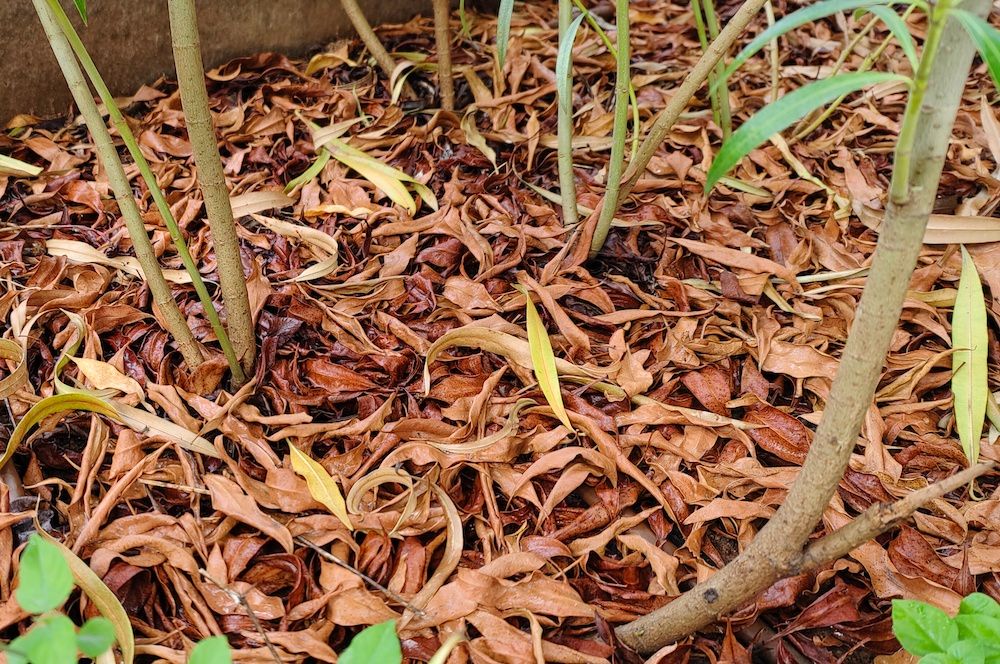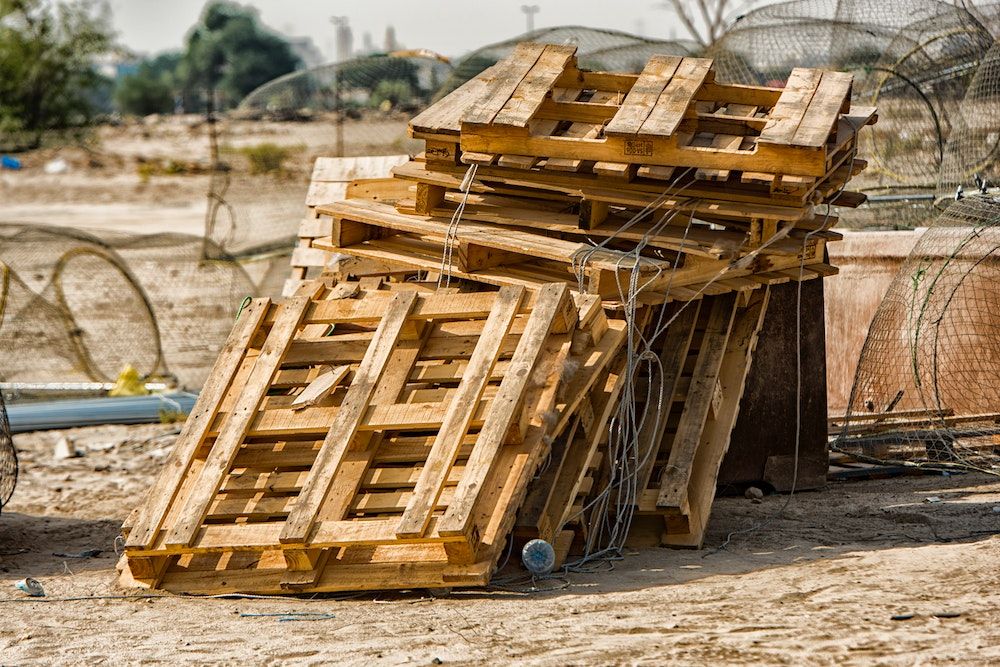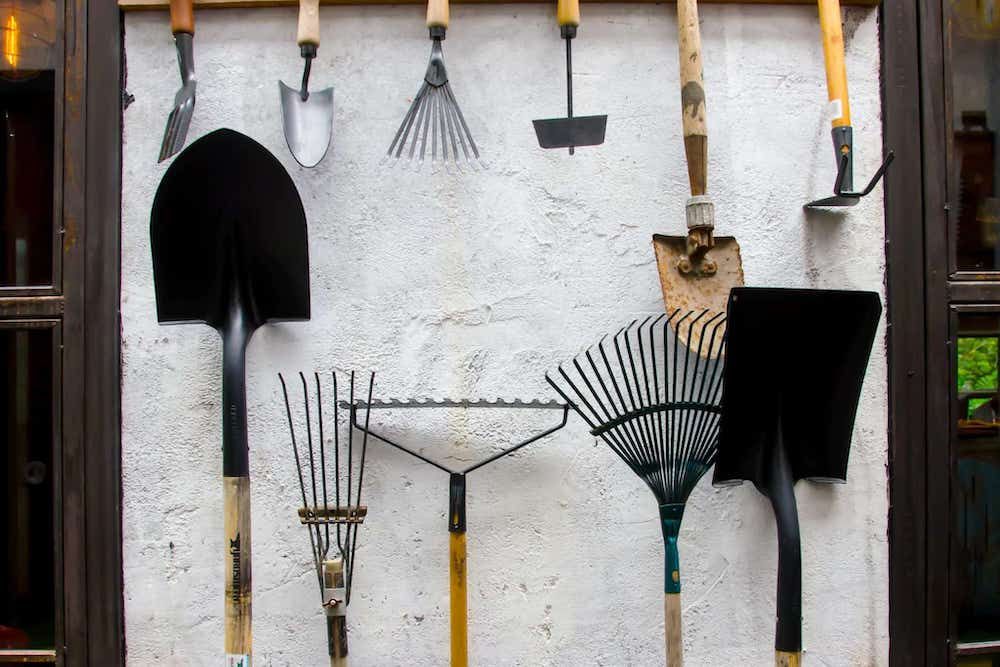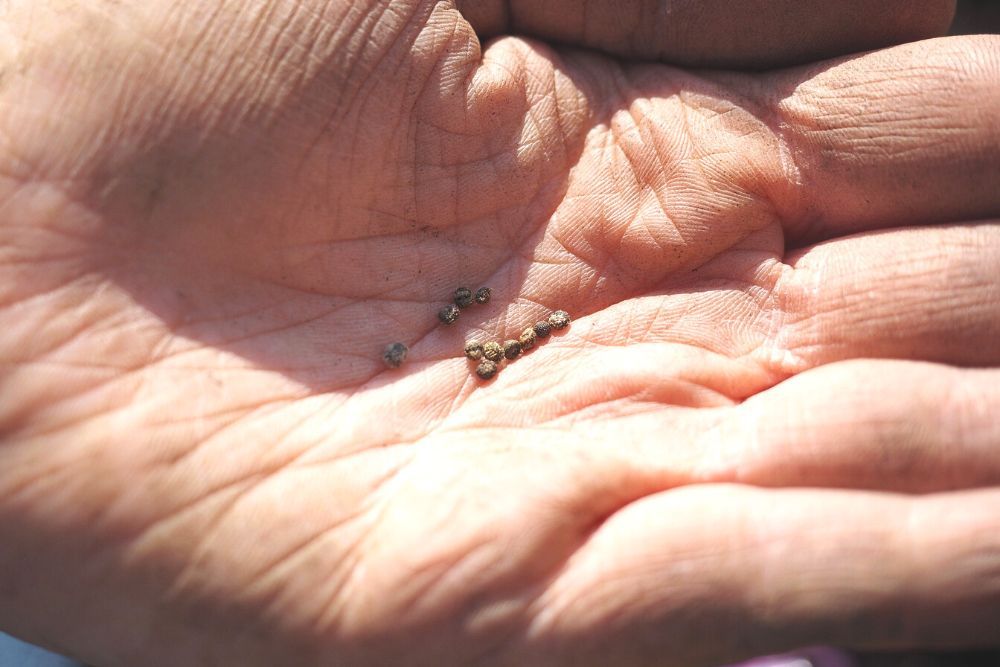Gardening is a great way to reconnect with nature, grow your own food and flowers, and improve your physical and mental well-being. But, depending on the scale of your garden, the cost can add up -- it doesn't have to!
Along with DIYing fertilizers and pesticides, you can snag many other supplies for free. Learn about some gardening supplies you can get for free, helping you save money that you can spend on other unavoidable expenses.
6 Ways to Get Free Gardening Supplies
Growing your own food, herbs, and flowers shouldn't burn deep holes in your pocket. Here are some ways to minimize costs through free gardening supplies.
1. Seed Starting Containers
Image credits: normanack via Creative Commons
Buying brand-new seed starting containers can be expensive, especially if you want to start many seeds. Instead of spending money on seed starting trays and kits, repurpose egg cartons, baby food jars, yogurt cups, paper cups, old muffin and ice cube trays, and milk cartons.
Toilet paper roll pots are another fantastic alternative to coir and peat pots, which can be pricey to buy in bulk. Another option is starting seeds in paper towels, which eliminates the need for multiple containers, saving you space.
You can even check the Nextdoor app, Facebook Marketplace, or your local Craigslist to see if anyone wants to give away their pots and planters for free.
2. Compost
Image credits: Jerome.Romme via Shutterstock
There are many benefits to compost apart from providing plants nutrients. It helps improve soil structure and fertility, which boosts plant growth. Since you'll be using a significant amount of compost every year, making your own batch is cheaper than buying commercial compost.
Transform your kitchen scraps and organic garden debris into black gold for your garden! Use compost tumblers, build an outdoor DIY compost bin, or use an indoor compost bin. You can even compost on a balcony.
If you'd rather compost and grow simultaneously, check out lasagna gardening or build a keyhole garden to save space, time, and effort! If making compost is out of the question, check out online resources, local farms, or local programs that give away free compost.
3. Mulch
Image credit: Lakeisha Ethans for Backyard Boss
Mulch is a great way to help soil retain moisture, prevent erosion, and smother weeds before they steal your plants' nutrients. You can buy commercial mulches, but buying bag after bag gets costly if you have a large garden.
Instead of skipping on mulching, use any of the several free alternatives for your garden. Fallen leaves, grass clippings, shredded newspaper, and wood chips are great alternatives to store-bought mulches.
Tree pruning or cutting companies have bags full of fallen leaves, tree pruning, and wood chips that you can get for free or at a discounted rate, depending on your location. Alternatively, check your neighborhood or online for people wanting to give away fallen leaves for free.
4. Pallets
Image credits: Frans van Heerden via Pexels
There are many garden projects you can DIY using wooden pallets. You can build compost bins, vertical gardens, garden furniture, and even Christmas trees from pallets! If you're growing climbers and vines, you can also use pallets as a DIY trellis.
Many large stores have multiple stacks of pallets they wouldn't mind giving away for free. You can check out:
- Hardware stores
- Large furniture stores
- Construction builders
- Sports and equipment stores
- Large pet supply stores
- Grocery warehouses
- Craigslist, Facebook Marketplace, and the Nextdoor app
When selecting your pallets, don't pick those marked "MB." Pallets marked with Methyl Bromide (MB) are treated with a broad-spectrum pesticide harmful to human health. They can leach dangerous chemicals into your crops if you use them for gardening.
Pick heat-treated pallets (HT) as they're free from harmful chemicals and safe to use.
5. Basic Gardening Tools
Image credits: me2724 via Shutterstock
Shovels, trowels, rakes, spades, forks, and shears are essential gardening tools that can overwhelm your pocket. Check online resources and join a local gardening group to connect with other gardeners willing to trade or give away tools for free or at a discounted rate.
One caveat: depending on quality and maintenance, garden tools can last a few years or months, so when possible, budget for when things go wrong in the garden tool section.
6. Seeds
Image credits: Hans via Pixabay
Buying seeds online to grow a couple of plants won't cost an arm and a leg, but purchasing seeds in large quantities can start to add up. (Plus, there are always shipping costs to bear in mind!)
Besides asking neighbors, there are a couple of ways to get free seeds for your garden. You can join a local seed exchange program, harvest seeds from vegetables you buy or grow, or check out your local seed library for rare, open-pollinated, and heirloom seeds. A seed library is similar to a library for books; you borrow seeds, grow your plants, and return seeds after your plants have produced them.
Join a seed exchange program even if you have no seeds to exchange. You can save seeds from this year's produce and exchange them for more seeds next growing season. Finally, check out gardening stores to see if they'll give you old seeds instead of throwing them out.
Stake It or Leaf It!
Gardening is a popular hobby and a great way to become self-sufficient, but it can get pricey. However, with the above tips under your toolbelt, gardening doesn't have to burn a deep hole in your pocket. Getting free gardening supplies is a huge relief if you want to cut down on costs and save money for unavoidable expenses.
Join your local gardening group and check social media to connect with people who give away gardening supplies for free or at a discounted rate. Also, join a seed exchange program to obtain various vegetable, fruit, and flower seeds for free!
Leave your experiences, thoughts, and questions in the comment section! And share with friends and family who might find this helpful.
Happy Gardening!

